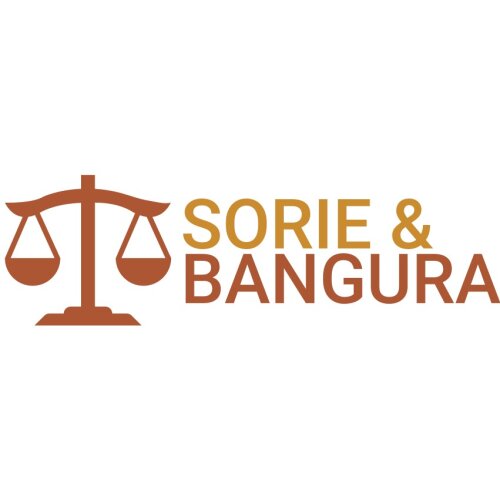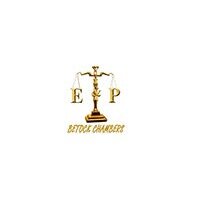Best Nonprofit & Charitable Organizations Lawyers in Freetown
Share your needs with us, get contacted by law firms.
Free. Takes 2 min.
List of the best lawyers in Freetown, Sierra Leone
About Nonprofit & Charitable Organizations Law in Freetown, Sierra Leone
Nonprofit and charitable organizations in Freetown, Sierra Leone, play a crucial role in addressing a myriad of social issues. They operate to benefit the community through education, health care, environmental conservation, and poverty alleviation, among other causes. The legal framework governing these entities involves both local laws and international best practices, ensuring that they operate transparently, accountably, and efficiently. Understanding the regulatory environment is essential for establishing and maintaining a nonprofit in compliance with local legislation.
Why You May Need a Lawyer
Engaging a lawyer is often necessary to navigate the complexities of starting and running a nonprofit organization. Common situations where legal advice may be required include:
- Establishing the nonprofit structure and securing appropriate registration.
- Understanding compliance requirements with local laws and international standards.
- Drafting bylaws and organizational policies.
- Handling taxation issues and securing tax-exempt status.
- Addressing governance issues, including board responsibilities.
- Managing employment contracts and human resource policies.
- Contract negotiations with donors, partners, and service providers.
- Liability and risk management.
- Dispute resolution with stakeholders.
- Seeking legal recourse in the event of fraud or mismanagement.
Local Laws Overview
In Freetown, Sierra Leone, the legal landscape for nonprofit and charitable organizations is shaped by the Companies Act, 2009, and other relevant regulations. Key aspects include:
- Registration and Compliance: Nonprofits must register with the Corporate Affairs Commission and comply with specific reporting requirements.
- Tax Exemption: Certain charities may qualify for tax-exempt status, but they must adhere to regulations regarding income usage and financial reporting.
- Governance Structure: Organizations typically need a board of directors with clearly defined roles and responsibilities.
- Transparency and Accountability: Effective record-keeping and publication of annual reports are often required to maintain public trust.
- Fundraising Regulations: Nonprofits must follow specific rules when conducting fundraising activities, including obtaining necessary permits.
Frequently Asked Questions
What is the process for registering a nonprofit in Freetown, Sierra Leone?
Registration involves preparing necessary documents, such as the memorandum and articles of association, applying to the Corporate Affairs Commission, and paying relevant fees.
Are there tax benefits for registered charitable organizations in Sierra Leone?
Yes, registered charities can apply for tax-exempt status on certain income, but they must comply with specific financial regulations.
What are the governance requirements for a nonprofit?
Nonprofits must have a board of directors with defined governance structures to ensure effective oversight and adherence to legal obligations.
Can a nonprofit engage in commercial activities?
While nonprofits can engage in commercial activities to support their mission, any profits must be reinvested into charitable purposes and not distributed to members.
How can a nonprofit protect itself from liabilities?
Organizations can manage liabilities by securing liability insurance, following legal compliance rules, and developing sound risk management strategies.
What are the reporting requirements for nonprofits?
Nonprofits are generally required to submit annual financial statements and activity reports to regulatory bodies and make them available to stakeholders.
How does a nonprofit dissolve if necessary?
Dissolution requires following procedures outlined in the organization's governing documents, settling debts, distributing remaining assets according to legal requirements, and notifying the relevant authorities.
Can foreigners establish a nonprofit in Sierra Leone?
Yes, but they must comply with local registration and operational laws and possibly seek collaboration with local entities to ensure community alignment.
What are the consequences of non-compliance with nonprofit regulations?
Non-compliance can lead to loss of tax-exempt status, legal penalties, reputational damage, and in severe cases, organizational dissolution.
Are there specific fundraising guidelines nonprofits must follow?
Yes, including obtaining permits for public fundraising activities and adhering to transparency and accountability standards.
Additional Resources
Several resources can provide guidance for nonprofit and charitable organizations in Freetown, Sierra Leone:
- Corporate Affairs Commission: The primary body for nonprofit registration and compliance in Sierra Leone.
- The Sierra Leone Association of Non-Governmental Organizations (SLANGO): Offers support and advocacy services for NGOs.
- Sierra Leone Tax Authority: Provides information on tax exemptions and financial obligations.
- Legal and advocacy organizations offering pro bono services to nonprofits.
- Local and international consultancy firms specializing in nonprofit sector legal advice and compliance.
Next Steps
If you need legal assistance in the field of nonprofit and charitable organizations in Freetown, Sierra Leone, consider the following steps:
- Research and identify reputable law firms or legal professionals with experience in nonprofit law.
- Prepare a list of your organization's specific legal needs or challenges.
- Schedule consultations to discuss your requirements and evaluate potential legal partners.
- Ensure the lawyer or firm you choose is familiar with both local and international nonprofit regulations.
- Stay informed about changes in local laws and regulatory practices affecting nonprofit operations.
Lawzana helps you find the best lawyers and law firms in Freetown through a curated and pre-screened list of qualified legal professionals. Our platform offers rankings and detailed profiles of attorneys and law firms, allowing you to compare based on practice areas, including Nonprofit & Charitable Organizations, experience, and client feedback.
Each profile includes a description of the firm's areas of practice, client reviews, team members and partners, year of establishment, spoken languages, office locations, contact information, social media presence, and any published articles or resources. Most firms on our platform speak English and are experienced in both local and international legal matters.
Get a quote from top-rated law firms in Freetown, Sierra Leone — quickly, securely, and without unnecessary hassle.
Disclaimer:
The information provided on this page is for general informational purposes only and does not constitute legal advice. While we strive to ensure the accuracy and relevance of the content, legal information may change over time, and interpretations of the law can vary. You should always consult with a qualified legal professional for advice specific to your situation.
We disclaim all liability for actions taken or not taken based on the content of this page. If you believe any information is incorrect or outdated, please contact us, and we will review and update it where appropriate.












